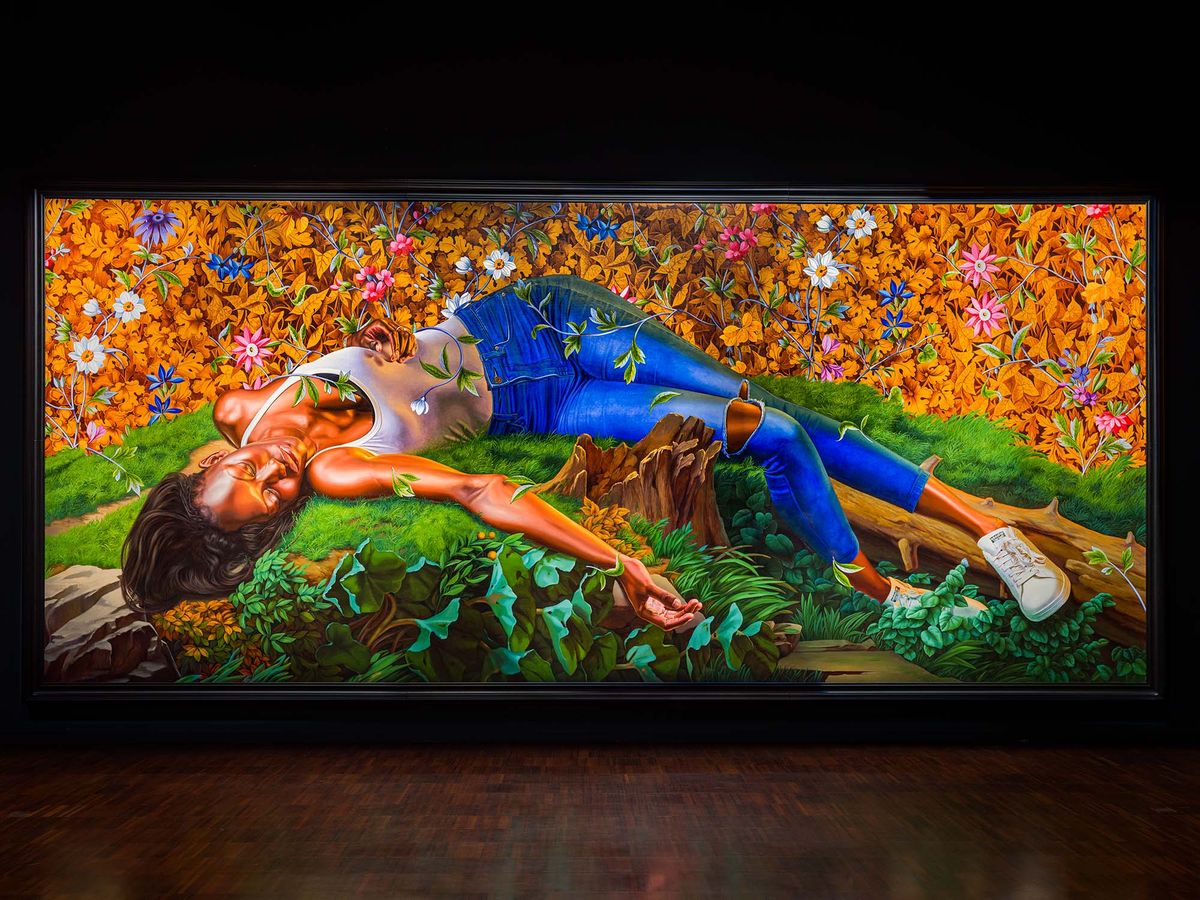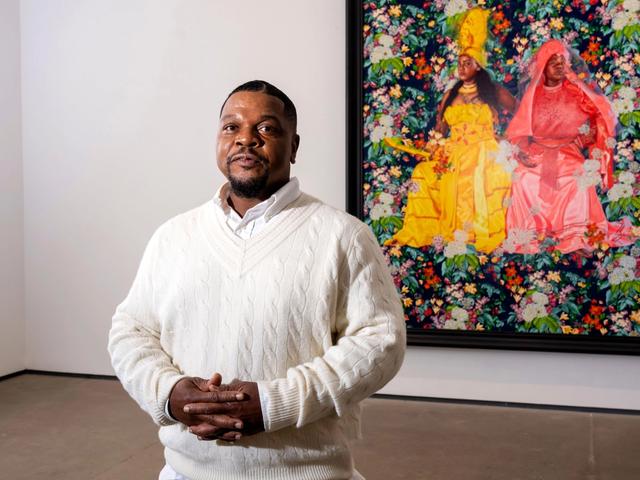An anti-censorship organisation is calling out the leaders of the Pérez Art Museum Miami (Pamm), the Minneapolis Museum of Art (Mia) and the Joslyn Art Museum in Omaha, Nebraska, for cancelling or postponing forthcoming solo shows by Kehinde Wiley, the renowned artist who has recently been accused of sexual assault by multiple men.
Wiley has disputed the allegations in the press, in a cease-and-desist letter and on social media (where many of the allegations were first made public), calling the accusations of rape, sexual assault and misconduct made against him “categorically false and defamatory". Nevertheless, after the accusations came to light, the Joslyn indefinitely postponed a show of new works by Wiley made in response to its European art collection, the Pamm postponed its upcoming presentation of the major traveling exhibition Kehinde Wiley: An Archaeology of Silence and the Mia seemed to indicate it was cancelling its presentation of the same show, scheduled for February 2025, entirely.
A letter addressed to all three institutions by the National Coalition Against Censorship (NCAC) claims the museums’ response to the allegations against Wiley “does a disservice to the audiences who wish to experience the work of one of the nation’s most well-recognised artists. The response also establishes an implied practice of scrutinizing the personal conduct of all exhibiting artists, and risks an ad hoc application of unstated policy.”
The letter goes on to highlight some of Wiley’s greatest achievements, including his iconic official portrait of Barack Obama, receiving a National Medal of Arts and being named one of Time magazine’s 100 most influential people in 2018. It also notes the “moral flaws” of many beloved and revered artists, including the “emotionally and sexually abusive” Pablo Picasso and the antisemitism of T.S. Eliot and Virginia Woolf.
“Museums are not equipped or mandated to be enforcers of moral orthodoxy,” the NCAC letter adds. “Their shared role is to identify and contextualise works that have artistic merit and cultural relevance. Museums are, or at least should be, equipped to host exhibitions that probe the complexity of given artworks at the time in which they are presented, and host important discussions about ethical conflicts, should the need for them arise.”
In late 2017 and 2018, a series of sexual-misconduct allegations against the photorealist painter Chuck Close prompted a similar series of decisions by institutions, with some postponing planned exhibitions or removing the artist’s work altogether. At the time, the Pennsylvania Academy of Fine Arts opted to keep its exhibition of Close’s photos on view and organised a parallel exhibition in response to the allegations.
In 2017, following the intense debate over Open Casket (2016), Dana Schutz's painting in the 2017 Whitney Biennial based on the historic photos of the brutalised body of Emmett Till following his 1955 murder—images that helped spur the US Civil Rights movement—the NCAC similarly argued against cancelling an exhibition of Schutz's work.



